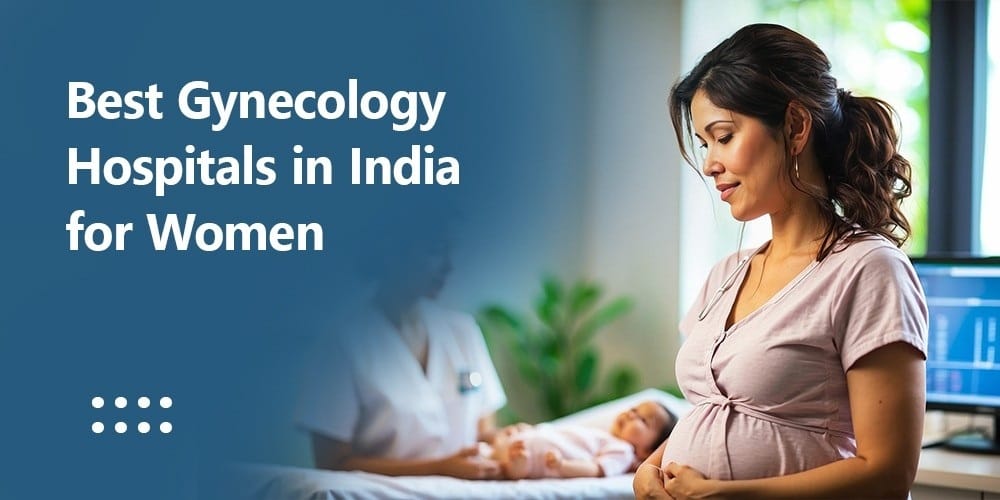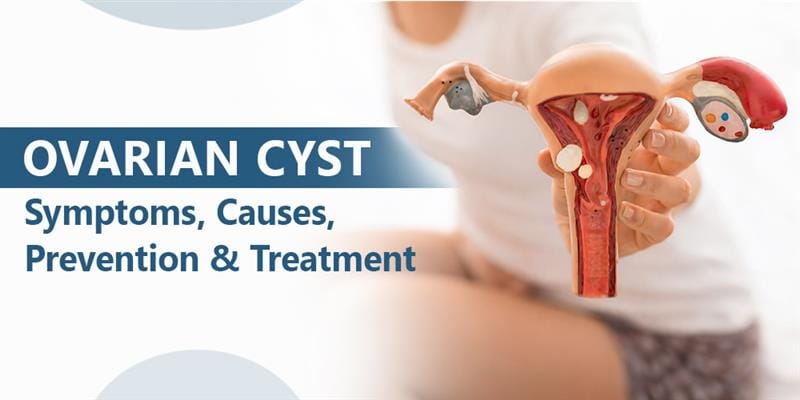The passage through women’s reproductive health from the first menstruation until menopause is intricate but highly affected by the decisions that we make on an individual daily basis. Most women consider their reproductive health as an isolated area of their well-being but couldn’t be further wrong. Your menstrual cycle, the ability to become pregnant, as well as your hormone stability, are cunning indicators of our total health. When your diet, stress, or daily routine is not in alignment, the first area of the body for women’s health issues tends to manifest in your reproductive system.
This article goes beyond the general understanding to reveal the subtle scientific link between your everyday lifestyle and the way it influences your hormones. Here, you will get an expert guide on how lifestyle and fertility are related. This will help you know the practical alterations you could make for the a better reproductive well-being as well as avoidance of the ordinary women’s health problems.
The Weight of Wellness: BMI, Body Fat, and Hormones
Body composition and body mass are perhaps the best-documented lifestyle factors for fertility. Both under- and over-weighting to an extreme level will negatively impact the finely balanced hormonal milieu required for regular ovulatory function.
Finding the Optimal BMI for Getting Pregnant
The body fat cells (adipocytes) not only hold the stored energy but also produce estrogen. In an individual who accumulates excessive body fat, the resulting high volumes of estrogen might trick the brain into thinking the body is already pregnant, suppressing the brain’s release of the hormones (FSH and LH), the ones for activating ovulation. As a result, women’s reproductive health issues like abnormal or non-occurrence of menstruation (anovulation) manifest.
On the other hand, being too thin or having extremely low body fat (typical among highly competitive endurance runners) may trigger the body’s survival mode. It recognizes the mode as starvation and freezes the reproduction system altogether by suppressing the production of estrogen and stopping periods in something referred to as amenorrhea.
Information compiled by organisations as the World Health Organisation (WHO) consistently supports the fact that a BMI between 18.5–24.9 best accompanies the highest rates of normal ovulation and fertility. As little as 5–10% variation in weight could bring about normal ovulation for most women who now experience women’s health problems due to their weight.
Understanding PCOS and Lifestyle Changes (The Insulin-Hormone Link)
Most women’s health problems stem from Polycystic Ovary Syndrome, also affected significantly by lifestyle as well as fertility choices. PCOS itself has an underlying cause of insulin resistance, where the body cells respond poorly to the hormone insulin. Consequently, the pancreas over-produces it. High circulating insulin then stimulates the ovaries to over-produce male hormone. It disrupts ovulation.
It suggests why PCOS and lifestyle changes remain the first treatment. A diet for low glycemic index foods combined with regular moderate exercise directly treats the insulin resistance and balances the hormone balance in women and often returns the menstrual cycle to normal without the need for medication.
This mechanism highlights why PCOS and lifestyle changes are the first line of defense. A diet focused on low glycemic index foods, combined with regular, moderate exercise, directly addresses the insulin resistance, restoring hormonal balance in women and often regulating the menstrual cycle without the need for medication. [Internal Link Anchor 1: Read our in-depth guide to Polycystic Ovary Syndrome (PCOS) diagnosis and treatment options.
Fueling Fertility: Diet, Inflammation, and Egg Quality
What you take in becomes the building material of all the hormones, eggs, and cells of the reproductive apparatus. It isn’t starvation but the issue of supporting an extremely complex process of reproduction through fertility boosting diet.
Essential Nutrients for Nutrition for Egg Quality
The woman’s nutritional health determines the quality of the woman’s ovaries, or ovarian reserve. Ovaries take months to mature, so long-term investment equates to quality nutrition. Important nutrients for nutrition for egg quality are:
Antioxidants (Vitamins C, E, Selenium): Shield the reproductive tissues as well as the eggs against oxidative stress, the latter speeding up cell aging. Mainly dietary. Good dietary inputs are berries, dark greens, nuts.
Folate (Folic Acid): Important for the avoidance of neural tube defects in the possible fetus, but also needed for maturation of the egg.
Omega-3 Fatty Acids: In fatty fish and flaxseeds, those acids are important for cell membrane health as well as for the production of healthy hormones directly, aiding the hormonal balance in women.
Controlling Chronic Inflammation
One of the interesting findings on the topic of women’s reproductive health is the connection of managing chronic inflammation. Consuming a diet rich in processed sugars, refined carbs, and trans fats imposes an ongoing state of low-grade inflammation on the body. Low-grade inflammation has the potential of injuring the sensitive milieu of the ovaries and the uterus, leading to disorders such as endometriosis and the inability to implant. Moving towards the fertility-boosting diet of whole foods, vegetables, and healthful fats is the best way of decreasing this load of inflammation and greatly enhancing reproductive well-being.
The Stress-Hormone Highway: Mind, Sleep, and Cycles
In today’s high-stress world, chronic stress has become the underlying force behind women’s reproductive health issues. The body has built-in survival wiring. When stress is ongoing, the brain instructs the adrenal glands to dump cortisol into the body.
The Impact of Stress on Menstruation
High cortisol levels interfere directly with the hypothalamic-pituitary-ovarian (HPO) axis the communication system that controls the menstrual cycle. Cortisol can suppress the release of Gonadotropin-releasing hormone (GnRH), which is necessary to trigger ovulation. This leads to menstrual cycle changes, including delayed or missed periods. In essence, the body perceives high stress as a threat, diverting energy away from reproduction until the “threat” is gone. This interference is a major cause of anovulation, impacting lifestyle and fertility even in physically healthy women.
The Importance of Sleep Quality and Reproductive Cycles
The optimal time for the body’s hormonal reset is when it sleeps. Poor quality sleep and the menstrual cycle go hand-in-hand. Disrupting the body’s circadian rhythms (for instance, as the side effect of frequent night shifts or ongoing sleep deprivation) has an impact on the production of reproductive hormones like prolactin and melatonin that modulate ovulation. Regular 7–9 hour nighttime sleep is an absolute necessity for facilitating hormonal balance among women.
Hidden Threats: Toxins, Smoking, and Environmental Exposures
While diet and exercise are manageable factors, reproductive health is also threatened by external environmental exposures. These women’s health issues often remain invisible until a problem arises.
Smoking and Toxins and Female Fertility
Smoking is the most damaging of the external influences. Smoking makes the ovaries age at an incredibly faster rate, leading to an early use up of the stores of eggs (ovarian reserve). Smoking women enter menopause 1–4 years earlier than non-smoking women.
In addition, toxins and female fertility is an area of increasing concern. Chemicals referred to as Endocrine-Disrupting Chemicals (EDCs) in plastics (BPA, phthalates), pesticides, and some cosmetics act similarly to hormones in the body. It may muddle the endocrine system as well as lead to damaging nutrition for egg quality. To protect women’s reproductive health it is necassary to lower the use of plastics as well as ordinary cleaning substances
When to Seek Expert Guidance for Women’s Health Issues
Knowing the connections between lifestyle and fertility puts you in control but lifestyle modifications aren’t the solution for all women’s health problems. In the event you note regular menstrual cycle changes, extreme pains, or difficulty conceiving for more than a year (or six months for those aged over 35), it’s now time for you to see an expert.
A gynecologist for women’s health issues may then run the appropriate hormonal and diagnostic tests to exclude structural issues such as fibroids, tubal occlusion, or severe endometriosis. He or she will collaborate with you in the development of a science-based plan that ideally synthesizes lifestyle modifications with the use of selective medical therapies for the optimal route toward the reproductive health well-being. They will also help in managing high risk pregnancy.
Quick Takeaways
- BMI is the Key: Having an optimal BMI for conception 18.5–24.9 may help restore ovulation in most cases.
- Insulin First: Diet and exercise treatment for insulin resistance is the top lifestyle and fertility resource for PCOS and lifestyle changes.
- Stress is Systemic: Chronic stress causes menstrual cycle changes by impairing the HPO axis. Get ample sleep for hormonal balance in women.
- Dietary Defense: An antioxidant-rich fertility boosting diet ensures minimum management of chronic inflammation and preserves nutrition for the egg quality.
- Avoid Toxins: Smoking and exposure to toxins and female fertility disrupt ovarian health and accelerate the loss of egg reserve.
- The 2-Week Rule: Do not overlook women’s health problems such as ongoing pain or abnormal bleeding between periods; see an expert when symptoms continue for over two weeks.
Conclusion
Your reproductive system is robust and rugged but highly responsive to the lifestyle you lead. Women’s reproductive health is the sum of the lifestyle choices you make. Continuous small investments in fertility-boosting diet, stress management, and moderate exercise actively promote reproductive well-being.
Get in control of women’s health issues rightaway. In the unlikely event you suspect symptoms associated with lifestyle and fertility factors or require an actual diagnosis, contact an experienced gynecologist for women’s health issues. Your body values regular thoughtful attention.
Frequently Asked Questions (FAQs)
1. Can PCOS and lifestyle changes alone be enough to treat the condition?
Indeed, PCOS and liifestyle changes are the primary and best treatment for most women. Lowering the woman’s weight 5–10% using an optimal BMI for conception will significantly lower the woman’s insulin levels for most women, restoring hormonal balance in women and normal ovulation without the aid of medication.
2. How much does sleep quality and reproductive cycles actually affect my ability to get pregnant?
Bad sleep quality and reproductive cycles are related as HPO axis relies on circadian rhythms. Chronic sleep deprivation boosts the stress hormones (cortisol), which may disturb the signal required for the firing of ovulation. Keeping high-quality sleep as the number one priority helps the reproductive well-being.
3. What is the best fertility-boosting diet for minimizing inflammation?
The best fertility-boosting diet centers on the consumption of anti-inflammatory foods. Correspondingly, it excludes the consumption of processed sugars and trans fats but includes vegetable protein, whole grains, and health-building fats (like avocados, olive oil, and nuts). It is highly effective for managing chronic inflammation adversely impacting the health of the egg.
4. What is the first step I should take if I suspect women’s health problems related to stress?
In the event of suspicion concerning the impact of stress on menstruation or women’s health problems, the beginning point includes the application of routine, daily stress management beyond just weekends. Employ stress management methods like meditation, deep breathing exercises, as well as the application of appropriate sleep quality and reproductive cycles. In situations where menstrual cycle changes persist for over two months of coordinated stress management application, visit a gynecologist for women’s health issues.
5. How quickly can lifestyle and fertility improvements lead to conception?
The window of time differs, but the modifications may occur within a short time. Because eggs require around 90 days for full development, nutritional and lifestyle alterations may influence nutrition for egg quality within 3 months. Most women who have PCOS and lifestyle changes regulate their cycles between 3 to 6 months later, many resulting in conception within months after.






